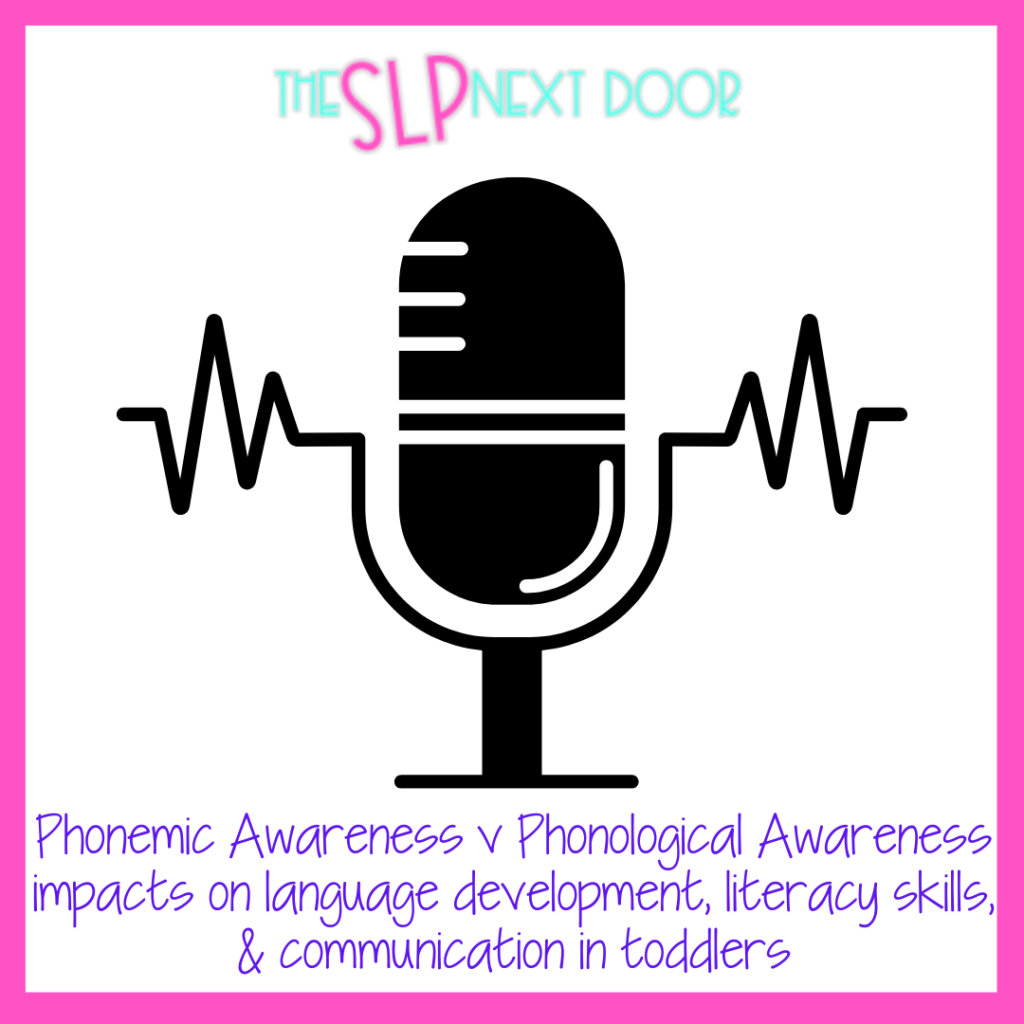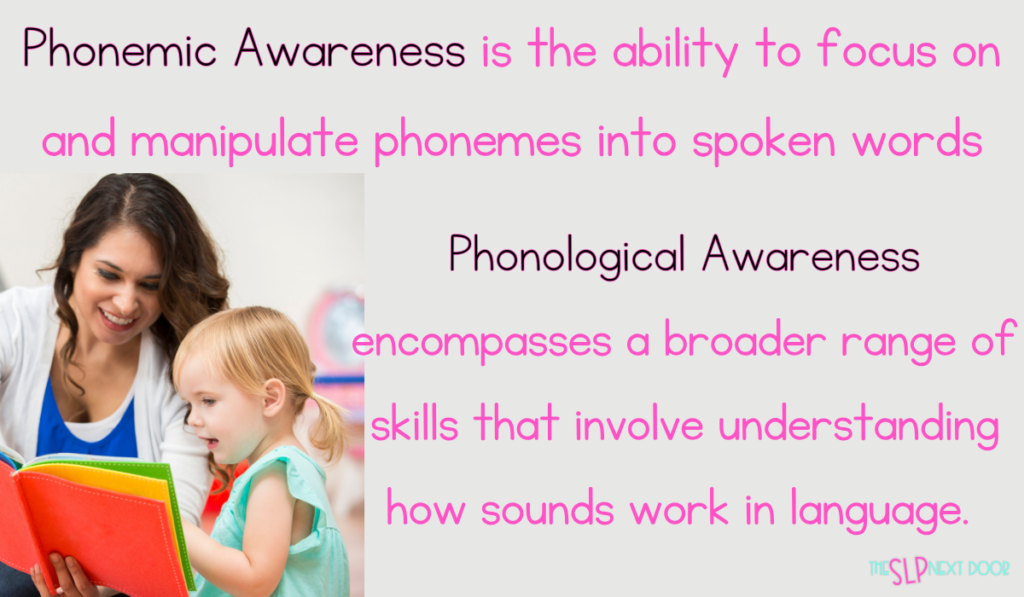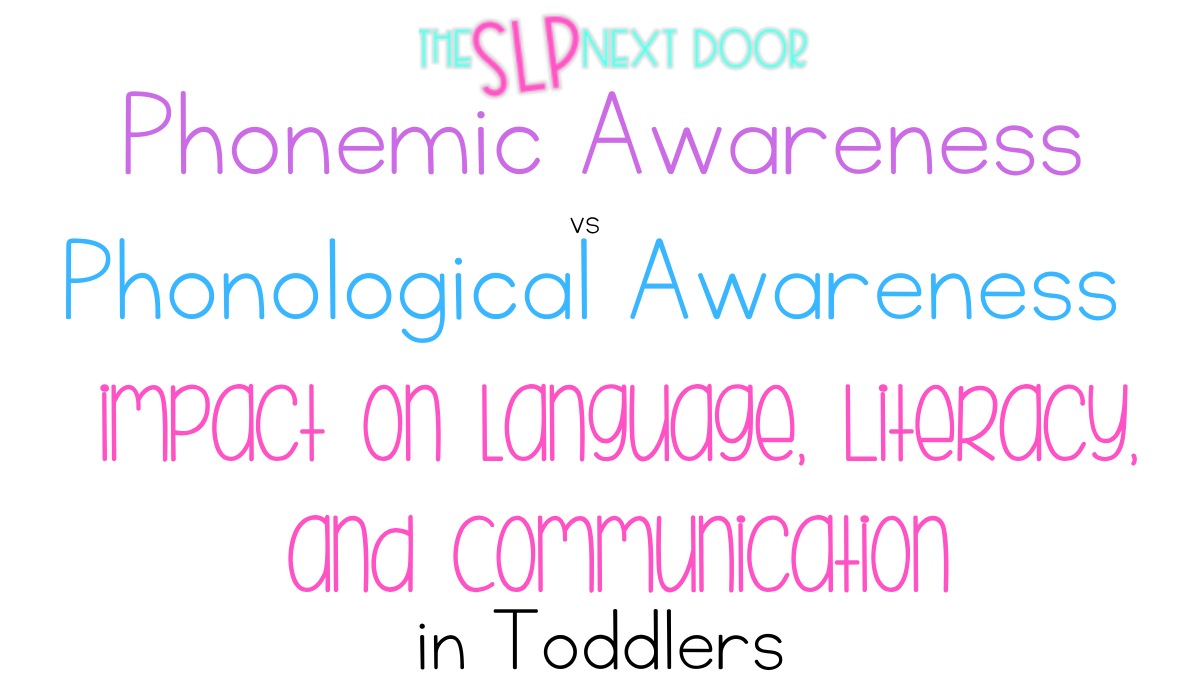Phonological Awareness versus Phonemic Awareness, what’s the difference? For the sake of this blog post, we are going to talk about the speech aspect of these two terms.

What’s a phoneme?
Before we jump into the definitions, we need to talk about the building blocks of words. A phoneme is the smallest unit of spoken language. English has 41 phonemes. Phonemes combine to form syllables and words. A few of those phonemes can stand alone as words.
The word “go” has 2 phonemes (g & o), “stop” has 4 phonemes, and “check” has 3 phonemes (ch & ck are both considered 1 phoneme because when combined, they create a single sound)
Understanding Phonemic Awareness and Phonological Awareness
Phonemic awareness is a crucial pre-reading skill that involves the ability to recognize and manipulate individual sounds in spoken words. This includes blending sounds together to form words, segmenting words into individual sounds, and manipulating sounds within words (such as changing the beginning or ending sound). Children who lack phonemic awareness may struggle with reading and writing later on, as they may have difficulty decoding words or spelling words correctly.
Phonological awareness encompasses a broader range of skills that involve understanding how sounds work in language. This includes recognizing and producing rhyming words, identifying syllables in words, and recognizing alliteration (the repetition of initial sounds in words). Phonological awareness is also important for reading and writing, as it helps children develop an understanding of the sound patterns in language.

The Importance of Developing Phonemic and Phonological Awareness in Young Children
Research has shown that phonemic and phonological awareness are strong predictors of later reading and writing success. Children who have strong phonemic awareness skills when they enter school are more likely to become successful readers and writers.
It is also important to the overall language development of young children. These skills help improve their ability to communicate effectively. Additionally, children with strong phonemic and phonological awareness skills may be better able to understand and learn new words.
The Role of Parents and Caregivers in Developing Phonemic and Phonological Awareness
Parents and caregivers play a critical role in developing these skills in young children. By engaging in conversation, reading aloud, and playing, parents and caregivers can help children develop a strong foundation in these skills. Additionally, parents and caregivers can provide a supportive and encouraging environment that fosters a love of language and learning.
Be sure to check out this bundle of activities of minimal prep activities, activities for phonological processes, and the materials you need to work with early language learners exhibiting difficulties with their speech and language development!



5 Responses